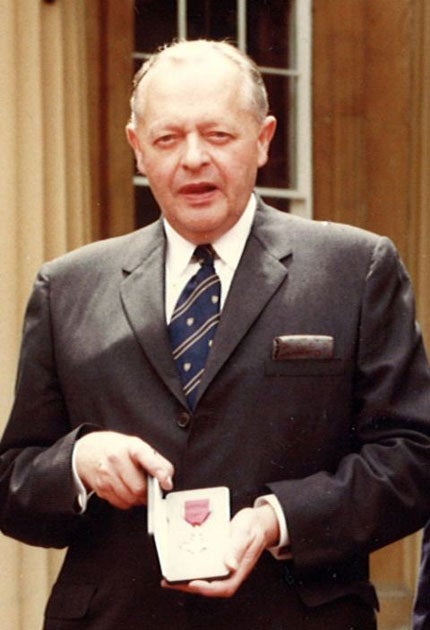Alan Baxendale: Civil servant who brought positive and lasting changes to the prison education system

Alan Baxendale was Chief Education Officer at the Home Office from 1967 to 1985 and brought about many positive and lasting changes in what had been an underdeveloped and sometimes woefully neglected part of the penal system. Understanding the role of education in rehabilitation, he markedly broadened prisoners' access to it. It is impossible to calculate how many lives were and continue to be transformed by innovations that he instituted. They seem so obviously correct in retrospect, but were achieved only through stubborn and prolonged persuasion, hard work and complex negotiations.
Alan Stanley Baxendale was born in Stockport, Cheshire and was educated at the town's ancient and distinguished grammar school. From the outset he was gripped by a commitment to education so intense and persistent that it defined his working life and the years beyond. He never doubted that it could transform even the most unpromising lives and difficult personalities and counter challenging environments.
Baxendale entered University College, London in 1943 to read history, leaving after the first year for military service in East Africa; he returned in 1947 and took his degree in 1949. His subsequent loyalty to his school and college was conspicuous.
Following his first degree there was a postgraduate qualification from the Institute of Education. The next 11 years were spent in educational administration in Uganda. There he advanced to the rank of Higher Education Officer, playing a part in the foundation of Makerere and Nairobi Universities. At the same time he earned a research MA from Birmingham University for studies in East African history.
As the wind of change blew ever more strongly, issues of transition acquired urgency and Alan was closely involved in professional and civil service training in Uganda, in preparation for Africanisation. Friendships made at this time endured throughout his life and he was in correspondence with East African former colleagues and students until weeks before his death.
Returning to Britain in 1961, Baxendale successively held senior posts in educational administration in Shropshire, East Sussex and Enfield. These were followed by his 1967 appointment to the Home Office. He was convinced that as long as education remained a prison department in-house service it would at best merely bump along. The times were ripe for a major shift. Drawing on his background and connections in local government, he was able to negotiate a partnership arrangement whereby prison education became a responsibility of local education authorities while being funded by the Home Office. This allowed prisons to draw on a reservoir of experience and range of skills far beyond anything previously available and opened institutions to new ideas and attitudes.
Alan was quick to understand and grasp the numerous opportunities of the Open University. His approach was to provide through education a ladder for prisoners and he realised that as they ascended the various rungs of attainment, skill and confidence, some would arrive at the point where higher education would be a logical extension of their endeavours.
In 1981 the Open University awarded Baxendale an honorary MA in recognition of his work for adult education. Retirement in 1985 was marked by an OBE. Over the following 25 years he energetically involved himself in many activities broadly relating to education. He registered for a research degree at Queen Mary, University of London, in 1997. This culminated in the MPhil, gained at the age of 79. He developed into a book his interesting and minutely researched dissertation on Churchill's 19-month tenure as Home Secretary; Winston Leonard Spencer-Churchill: Penal Reformer (2010). Churchill's imperious, humane (and sometimes emotional) questioning of penal orthodoxies demanded the diligent exploration and nuanced exposition that Alan brought to it. This work well deserved its laudatory foreword from the great Churchill scholar Sir Martin Gilbert.
Alan Baxendale had an unvaryingly positive attitude to life and work and embraced the traditional injunction always to serve to the best of one's abilities and energies. In his own education and that of others these fundamentals found apt and fruitful expression. His life's work and significant achievements flowed from a reticent and understated compassion and a strong will to do the right thing in whichever arena he found himself.
Alan Stanley Baxendale, educator: born Stockport, Cheshire 17 April 1925; OBE; died Welwyn Garden City, Hertfordshire 3 October 2010.
Subscribe to Independent Premium to bookmark this article
Want to bookmark your favourite articles and stories to read or reference later? Start your Independent Premium subscription today.

Join our commenting forum
Join thought-provoking conversations, follow other Independent readers and see their replies